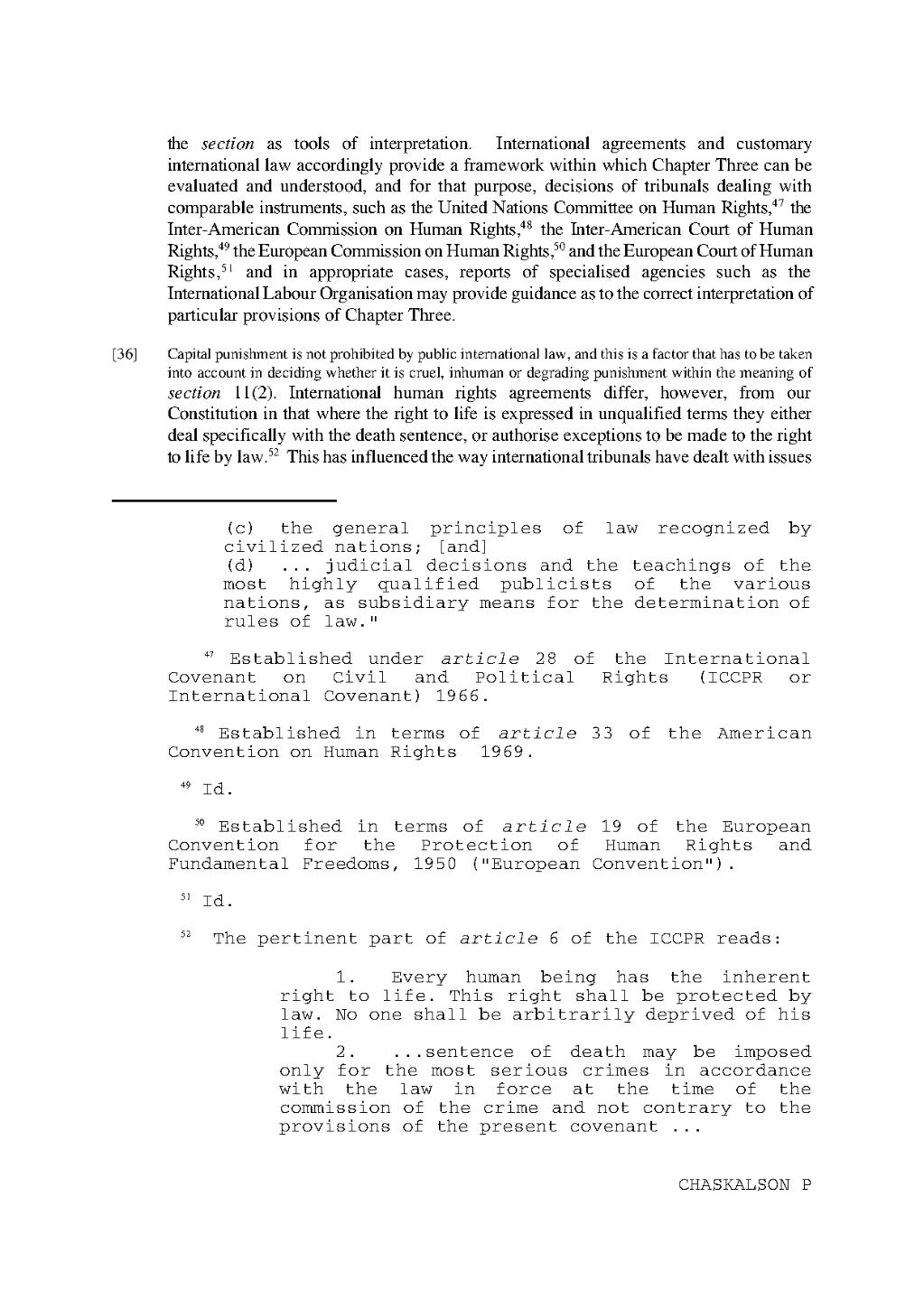the section as tools of interpretation. International agreements and customary international law accordingly provide a framework within which Chapter Three can be evaluated and understood, and for that purpose, decisions of tribunals dealing with comparable instruments, such as the United Nations Committee on Human Rights,[1] the Inter-American Commission on Human Rights,[2] the Inter-American Court of Human Rights,[3] the European Commission on Human Rights,[4] and the European Court of Human Rights,[5] and in appropriate cases, reports of specialised agencies such as the International Labour Organisation may provide guidance as to the correct interpretation of particular provisions of Chapter Three.
[36]Capital punishment is not prohibited by public international law, and this is a factor that has to be taken into account in deciding whether it is cruel, inhuman or degrading punishment within the meaning of section 11(2). International human rights agreements differ, however, from our Constitution in that where the right to life is expressed in unqualified terms they either deal specifically with the death sentence, or authorise exceptions to be made to the right to life by law.[6] This has influenced the way international tribunals have dealt with issues
- ↑ Established under article 28 of the International Covenant on Civil and Political Rights (ICCPR or International Covenant) 1966.
- ↑ Established in terms of article 33 of the American Convention on Human Rights 1969.
- ↑ Id.
- ↑ Established in terms of article 19 of the European Convention for the Protection of Human Rights and Fundamental Freedoms, 1950 ("European Convention").
- ↑ Id.
- ↑ The pertinent part of article 6 of the ICCPR reads:
1. Every human being has the inherent right to life. This right shall be protected by law. No one shall be arbitrarily deprived of his life.
2. …sentence of death may be imposed only for the most serious crimes in accordance with the law in force at the time of the commission of the crime and not contrary to the provisions of the present covenant …
Article 4(2) of the American Convention on Human Rights and article 2 of the European Convention of Human Rights contain similar provisions. Article 4 of the African Charter of Human and People's Rights provides:
Human beings are inviolable. Every human being shall be entitled to respect for his life and the integrity of his person. No one may be arbitrarily deprived of this right. (Emphasis supplied)
